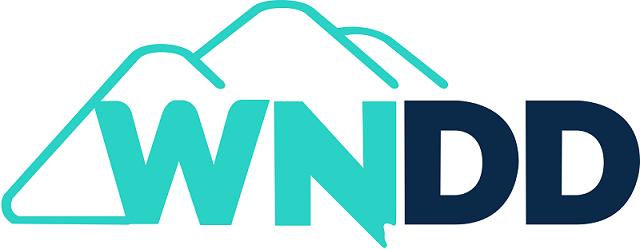Curated by WNDD…This edition of Five for Friday focuses on opportunities for economic development around the region in the areas of professional education, grant processes, the arts, training, revitalization and conservation.
WNDD Summit – January 30th & 31st!
“Show Me the Money: How to Get your Next Grant”
Join Us… for our 2023 Summit and explore the complicated world of grants, grant writing and more. The events start on January 30th with the Reception Dinner and all are invited to attend. The one-day Summit on January 31st offers attendees the opportunity to learn from, and engage with grant experts from around the country.
January 30th
Reception Dinner: 5:30 pm to 8:30 pm
January 31st
Registration and Coffee: 8:00 am to 9:00 am
Summit: 9:00 am to 3:00 pm
Where:
Atlantis Casino Resort Spa
Grand Ballrooms 5,6 and 7
Registration Fee:
Members – Dinner and Full Summit $25
Non Members – Dinner and Full Summit $75
Dinner Only – $50
Hotel Information:
Atlantis Casino Resort Spa
Group rate of $114/night
800.723.6500
Code: WNDD Members Summit
Summit Information
Summit Schedule
Registration
Grants for Arts Projects
Grants for Arts Projects is the National Endowment for the Arts’ (NEA) largest grants program for organizations, providing comprehensive and expansive funding opportunities for communities. Applicants may request cost share/matching grants ranging from $10,000 to $100,000. Designated local arts agencies eligible to subgrant may request from $30,000 to $150,000 for subgranting programs in the Local Arts Agencies discipline. Through project-based funding, the program supports opportunities for public engagement with the arts and arts education, for the integration of the arts with strategies promoting the health and well-being of people and communities, and for the improvement of overall capacity and capabilities within the arts sector.
NEA welcomes applications from a variety of eligible organizations, including first-time applicants; from organizations serving communities of all sizes, including rural and urban areas; and from organizations with small, medium, or large operating budgets. Art projects are funded in the following disciplines: Artist Communities, Arts Education, Dance, Design, Folk & Traditional Arts, Literary Arts, Local Arts Agencies, Media Arts, Museums, Music, Musical Theater, Opera, Presenting & Multidisciplinary Arts, Theater, and Visual Arts.
First Deadline: February 9, 2023
See Artistic Disciplines Link Below for Additional Deadlines
Eligible Organizations
Artistic Disciplines
YouthBuild for Skills Training and Community Service
The Department of Labor’s YouthBuild awards grants through a competitive process to organizations providing pre-apprenticeship services that support education, occupational skills training, and employment services to opportunity youth, ages 16 to 24, while performing meaningful work and service to their communities. The YouthBuild program model prepares participants for quality jobs in a variety of careers, including infrastructure, and contains wrap-around services such as mentoring, trauma-informed care, personal counseling, and employment – all key strategies for addressing community violence.
YouthBuild applicants must include construction skills training and may include occupational skills training in other in-demand industries. Key aspects of the YouthBuild service delivery model include meaningful partnership and collaboration with the public workforce development system, education and human services systems, and labor and industry partners. Grant awards range from $700,000 to $1.5 million based on number of participants.
Application Deadline: February 7, 2023
YouthBuild NOFO
YouthBuild Program Information
Bringing HOPE to Main Streets
The HOPE VI Main Street Program provides grants to communities smaller than 50,000 in population to assist in the renovation of a historic, traditional central business district, or “Main Street” area by replacing unused, obsolete, commercial space in buildings with affordable housing units. The obsolete building space property may be publicly or privately owned. Eligible applicants are county governments, city or township governments, and special district governments.
The objectives of the program are to:
• Redevelop central business districts (Main Street areas);
• Preserve historic or traditional Main Street area properties by replacing unused commercial space in buildings with affordable housing units;
• Enhance economic development efforts in Main Street areas; and
• Provide affordable housing in Main Street areas.
Project funding is set at $500,000 through this NOFO.
Application Deadline: January 31, 2023
Hope VI Main Street Program
Land and Water Conservation Fund Outdoor Recreation Legacy Partnership Program
The U.S. Department of Interior’s National Park Service offers grants to states, and through states to local units of government and federally-recognized Indian tribes, for projects that will provide outdoor recreation opportunities to the public through the acquisition of lands and waters for parks and other outdoor recreation areas, as well as through the development of new, or the renovation of existing, outdoor recreation facilities.
The competition will prioritize the selection of projects that:
• provide new recreational opportunities, particularly those that will increase access to nature’s benefits, such as green spaces, shady areas (via tree cover), and natural landscapes that help cool the air and reduce urban heat island effects, reduce pollution, and have positive effects on mental and physical health;
• empowered and engaged members of the target community in the project development and design of the plans for the park;
• create or expand public-private partnerships that leverage matching share resources (e.g., money or donations of land, supplies, or services, etc.);
• benefit from a high degree of coordination among the public, multiple levels of government, and the private sector; and
• advance goals of, or meet, priority recreation needs identified in numerous local, regional, state plans and/or initiatives.
Awards will range from $300,000 to $10 million.
Application Deadline: March 31, 2023
Land and Water Conservation Fund
